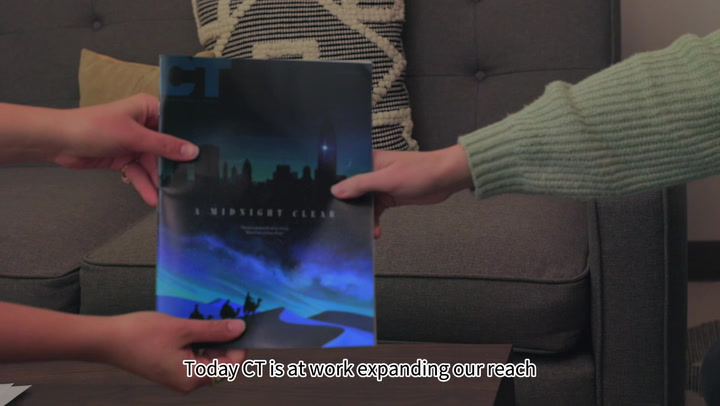Will you help encourage and connect the church?
Give NowWill you help encourage and connect the church?
Give NowThere was a time—though it is hard to imagine it now—when people read magazines only on real paper, received them only in actual mailboxes, and could share them with only one person at a time. The internet changed all that, of course, but the journey to this digital era has been happening slowly, step by (very unsure) step, over the last 20 years.
In 1994, the World Wide Web was a much different place than it is today. Most people paid an hourly rate to access it through an online service, using keywords and channels to find information and communities exclusive to that provider. No one knew for sure what this meant, or could mean, for a traditional print publication, but Christianity Today was interested in finding out. After meeting with the Big Three—America Online (AOL), CompuServe, and Prodigy—CT Vice Presidents John LaRue and Keith Stonehocker, who were heading up the online project, decided that AOL had the most potential for success and longevity and signed CT on to become the host of AOL's Christian forum, Christianity Online (CO).
On October 4th, 1994, Christianity Online launched, and CT officially joined the online world. The team was building something totally new, and creating the template for digital publishing as they went along. Early versions of that community included chat rooms, message boards, personals, and classified ads in addition to articles. Judy Gill, who joined the CO team as the online business manager after 9 years in other roles at CT and recently retired after 28 years with the company, says, "Honestly, there weren't many people at CT who understood what was going on at CO. It seemed to be viewed by most as a little side project, and some weren't sure it was worth the trouble. Fortunately, due to our agreement with AOL, it was close to self-sustaining for the first few years, so we were able to continue our 'little project' while the rest of the company (and world, really) began to understand where this internet thing was going."
The project did very well from its launch and grew quickly—AOL even hinted that CO was the most popular channel on its service—but as the internet grew, CT realized the old model was giving way to a new one, and it was time to cut ties with AOL and launch an independent site. In March 1996, Christianity Online (Christianity.net) became CT's official web presence, the first completely owned and operated by CT, though for a few years CT published the same content they were still providing for the AOL channel. This became ChristianityToday.com in October 2000, bringing together all of CT's publications except PreachingToday.com, which had its own site. (See the iterations of CT's online presence here.)
"We were one of the earliest Christian publishers with a significant online presence," says Clay Anderson, who worked on CO as a web designer and is now director of web development. "We had to figure out what would work online—and what wouldn't—before there was much industry wisdom from which to glean. This was before search engine optimization (SEO), when Yahoo far outranked Google. We had to figure out web content technology on the shoestring budget of a nonprofit. One of the reasons we built our own Content Management System was because some industry solutions at the time ran upwards of $1 million, and others were unsophisticated and unproven. This was before Wordpress, before anyone knew the term 'open source.'"
It was through this clunky code and unwieldy spreadsheets (multiple people mentioned one nicknamed "The Funky Thing" with a particularly strong disdain) the team—many of whom were learning this new field of web design and management as they went—figured out together what it took to run a website well.
Though many who worked on the site have since moved on from CT, the initial online team recently gathered to celebrate the 20 year anniversary of the launch. Pictured are Judy Gill, Ruth Castillo, John Hoff, Lee Cunningham Morgan, Rich Tatum, Kathy DePue, John LaRue, Laura Hartman, Valerie Broucek, Keith Stonehocker, and Clay Anderson, but many more helped shape CT's online presence in those early days. Todd Watermann, Sky Findlay, Steve Clark, Sheli Hayes, Tina Kirsch, Wendy Grant, Marci Whiteman, Ken Stewart, and Mike Herman all played important roles in Christianity Online.

Those early years set the tone for CT's approach to internet publishing. Looking back on those early years in which she worked on CO as a systems operator, current CT digital ad operations manager Kathy DePue said, "We've been blessed as a company to find continued success in ground-breaking innovation. What many laughed at has become a strong voice reaching out to all corners of the globe and is continuing to expand."
Laura Leonard is managing editor of BuildingChurchLeaders.com.








